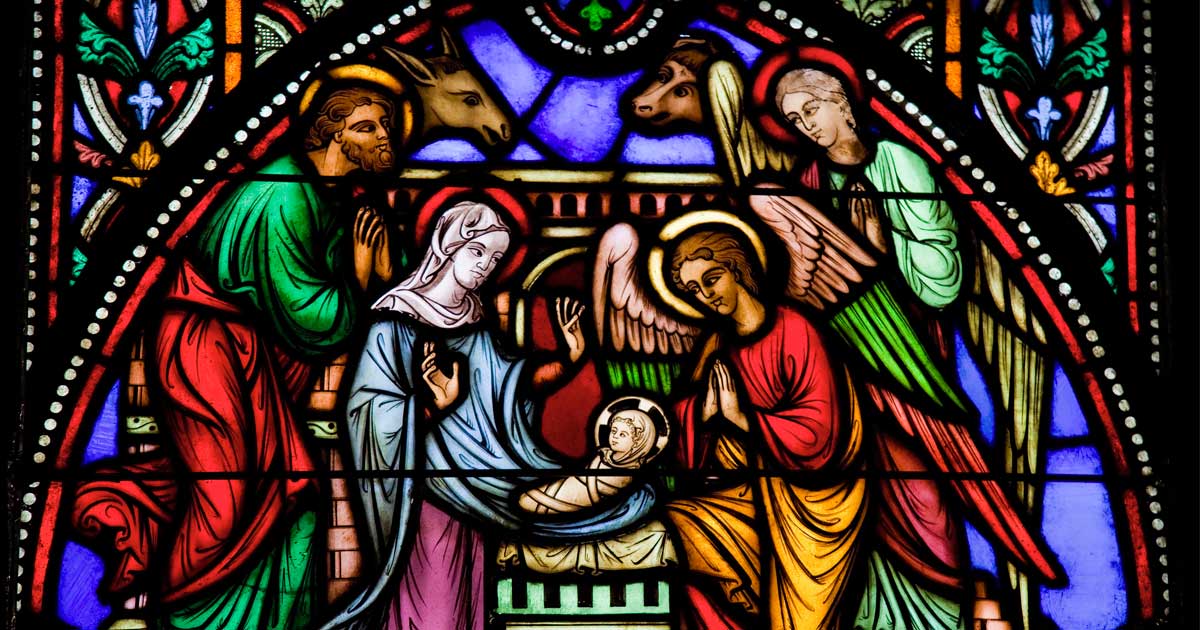One of my happiest childhood memories of Christmas is the visiting that happened. Every night between Christmas and New Year’s Day, one part of my family would welcome all the rest of us around their Christmas tree and their kitchen table – a table laden with all the festive food and drink of the season. As one of my uncles was an accomplished musician, we always ended up gathered around the piano singing carols and others songs associated with Christmas. Although parents, grandparents, and several aunts and uncles who made those times so very special have since died, I cherish those visits to this day.
Inasmuch as visits still shape the way we keep Christmas, so an account of visits is the very manner in which the evangelists tell the story of our Lord’s birth.
The angel Gabriel visits Mary of Nazareth and announces that God has chosen her to give birth to the Holy Child. Perplexed but accepting, she takes to the hills to visit her kinswoman Elizabeth who is also with child. The emperor decrees that all the people visit the city of their lineage to be registered. In so doing, and because the inn in Bethlehem is overcrowded with visitors; Mary and Joseph are directed to the stable in some hope that she might have privacy, however crude, in delivering her baby.
In nearby fields an angel visits a band of shepherds and announces the birth of the Saviour and where they will find him wrapped in swaddling cloths and lying in a manger. Then a multitude of the heavenly host fills the night sky with their song of glory to God and peace to God’s people on earth. Curious to see what had come to pass the shepherds make their way to the manger. Nervous but assured by Joseph, Mary receives these visitors. They say little. They simply look in humble adoration at the little Lord Jesus, asleep on the hay. That’s the sequence of visits in Luke’s account of the Gospel.
In Matthew’s account there’s another sequence beginning with the visit of an angel to Joseph assuring him that the child conceived in the womb of Mary is of the Holy Spirit. Then the evangelist moves quickly from a reference to the birth and naming of the child to an account of the visit of the Magi. Their arrival is majestic and their gifts mystic in meaning. Choosing not to report to Herod the whereabouts of the child, they depart by another road and he is furious for they have frustrated his plans. An angel makes a quick visit to Joseph, telling him to take the child and his mother and flee into Egypt to escape Herod’s wrath. They remain there until Joseph is visited again by an angel, this time assuring him it is safe to return.
These visits are all the makings of the lovely carols of Christmas. While I love those that draw me with angels and shepherds and magi to worship the Christ Child, I find myself especially drawn this year to those that help me ponder the great mystery of the Incarnation. This visit of God among us, this act of God as St. John says, revealing in human flesh that deep love and peace in which God would have the world healed and renewed. Long indeed is the list for whom, as citizens of the world, we pray this Christmas: for Syrians, Iraqis, Afghani, Sudanese, and Burundians; for all escaping oppressive political regimes; for holy innocents on the run as refugees seeking asylum in safer lands. Somehow they are all gathered into the carols we sing this year.
One carol less known than many others is Christina Rosetti’s “Love Came Down at Christmas”. In but a few verses, she captures that divine love which is at the heart of Christmas and the love to which it calls us –not just for twelve – but for all our days.
1. Love came down at Christmas,
love all lovely, love divine
love was born at Christmas –
star and angels gave the sign.
2. Worship we the Godhead,
love incarnate, love divine;
worship we our Jesus –
what shall be our sacred sign?
3. Love shall be our token,
love be yours and love be mine;
love to God and neighbour,
love for prayer and gift and sign.
(Hymn 131, Common Praise)
Interested in keeping up-to-date on news, opinion, events and resources from the Anglican Church of Canada? Sign up for our email alerts .

